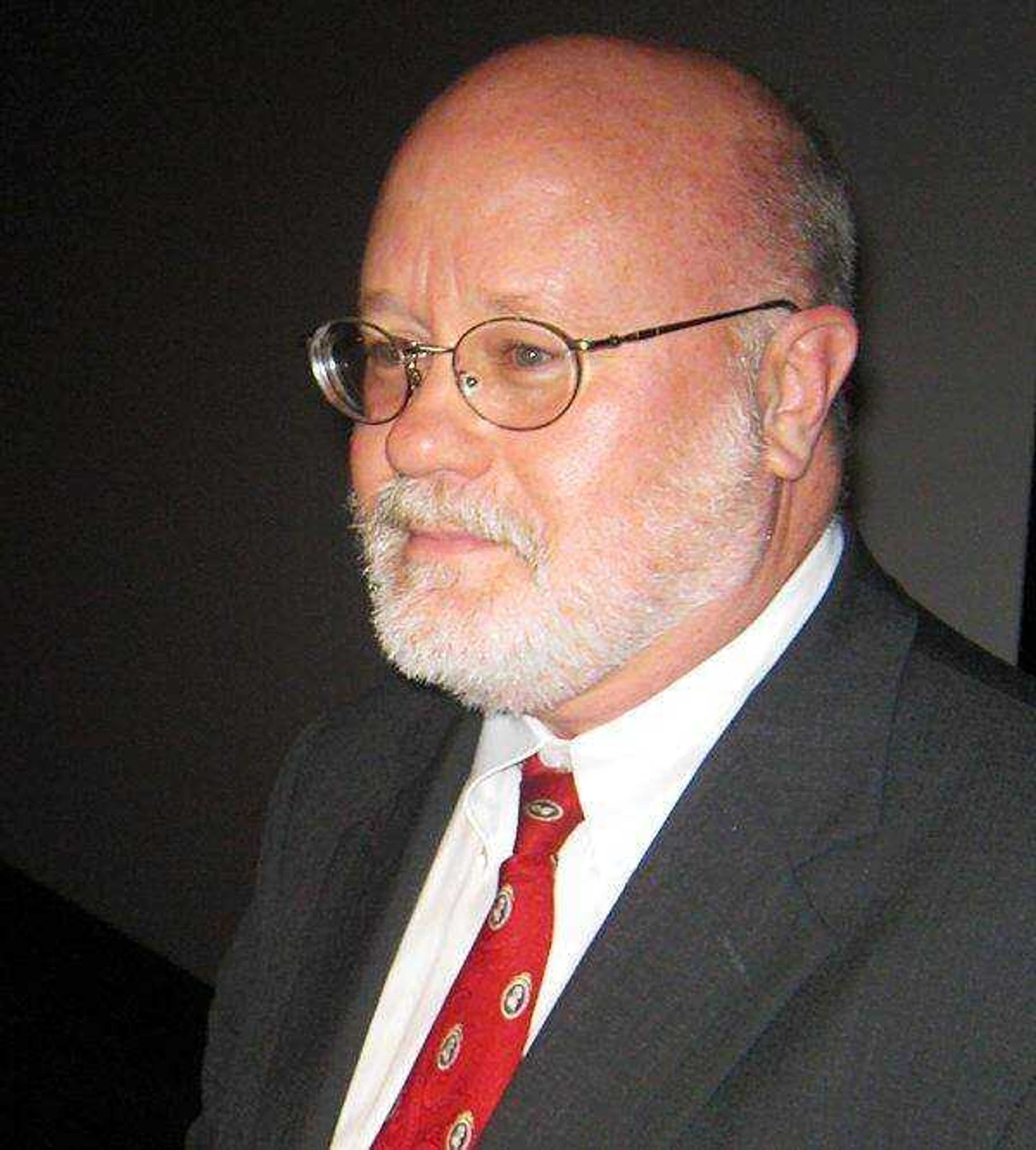Humanities series speaker presents lecture on separation of religion, government
A near-capacity audience was on hand Tuesday night at Southeast Missouri State University's Rose Theatre to listen to Dr. Daniel L. Dreisbach's lecture, "Mending Wall or Spite Fence?: Revisiting Thomas Jefferson's Wall of Separation." Dreisbach, a professor at American University in Washington, D.C., spoke for nearly an hour in what was Southeast's fourth installment of the Crader Humanities Lecture Series. ...
A near-capacity audience was on hand Tuesday night at Southeast Missouri State University's Rose Theatre to listen to Dr. Daniel L. Dreisbach's lecture, "Mending Wall or Spite Fence?: Revisiting Thomas Jefferson's Wall of Separation."
Dreisbach, a professor at American University in Washington, D.C., spoke for nearly an hour in what was Southeast's fourth installment of the Crader Humanities Lecture Series. His presentation challenged the view that Thomas Jefferson erected "a high wall of separation" between religion and government, and he contended that Jefferson's famous metaphor is being used today in ways that Jefferson himself wouldn't recognize and would even repudiate.
"Jefferson's metaphorical wall has been used to restrict the role of religion in society," Dreisbach told the audience. "While government reach into religion is now virtually unchallenged, religion's reach into government has been limited. The ‘wall between church and state' argument has been used to silence religious voice in the marketplace of ideas. This is something that would have alarmed the Founders, as it was their consensus that religious liberty was essential to the formation of our government."
Dreisbach stated that what Jefferson actually meant when he used the metaphor about a wall between church and state was that there should be a separation between the state and federal government with respect to religion, not a total separation of religion from all levels of government.
"It's my position that Thomas Jefferson's metaphorical wall was a matter of federalism," Dreisbach asserted. "The evidence suggests that he saw only a need for a separation between religion and the federal government, and not between religion and state and local government."
Dreisbach offered as evidence for his federalism theory Jefferson's time as governor of Virginia and as president of the United States.
"There are documented examples of Jefferson, while as governor of Virginia, supporting bills and proclamations of public fasting and Thanksgiving, which are indeed religious activities. However, as president, Jefferson repeatedly refused to issue proclamations of a religious nature or support bills that contained the same. Why? Because of his personal belief that religion, while to be kept separate on the federal level, should be kept in government and society on the state level."
Dreisbach said Jefferson's letter to a group of Baptists in Danbury, Conn., is what began the church and state debate that continues to this day.
"Jefferson's letter to the Danbury Baptists, which is his first usage of the metaphor about a wall between church and state, was something that he knew would be read by a wider audience," he said. "In the letter, Jefferson said, ‘I contemplate with sovereign reverence that act of the whole American people which declared that their legislature should make no law respecting an establishment of religion, or prohibiting the free exercise thereof, thus building a wall of separation between church and state.'"
Dreisbach said that when Jefferson referred to the "act," he was talking about the First Amendment, and his phrase "wall of separation between church and state" was meant to disallow government interference with religion.
"We have seen, over the course of time, how the phrase's meaning has been changed and has been used as legal foundations for religious restrictions," Dreisbach added. "In poll after poll, most Americans believe that separation between church and state is in the First Amendment. Nowhere will you find this in the U.S. Constitution."
Dreisbach also noted during his lecture that he is not seeking a union between church and state, but that he wants a more critical view taken of Jefferson's oft-quoted separation between church and state metaphor.
Those in attendance were, predictably, divided.
"I thought he was fabulous," said Brandon Wallingford of Cape Girardeau. "He made a strong case and I enjoyed it."
Another opinion differed.
"I think that going from a letter to our current interpretation of separation of church and state is quite a stretch," said the Rev. Robert Towner of Christ Episcopal Church. "It was a good presentation, but one with a transparently political point of view."
klewis@semissourian.com
388-3635
Pertinent address:
One University Plaza, Cape Girardeau, Mo.
Connect with the Southeast Missourian Newsroom:
For corrections to this story or other insights for the editor, click here. To submit a letter to the editor, click here. To learn about the Southeast Missourian’s AI Policy, click here.









